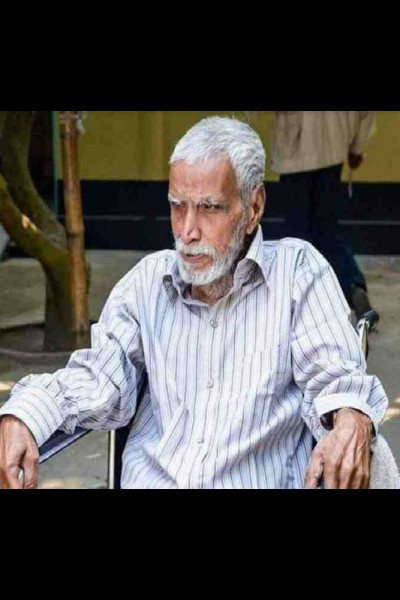A Silent Warrior: Tribute to Professor Muzibur Rahman Debdas

In 2007, Professor Muzibur Rahman Debdas returned to the spotlight when Liberation War Museum trustee and researcher Mofidul Hoque made a documentary on him titled "Kaan Pete Roi" (The Sound of Silence). The documentary expertly presented the lone and long struggle of Prof Debdas, a Liberation War hero.
The story of Debdas, who breathed his last at 90-years-old in his ancestral home in Joypurhat's Maharul village on May 18, is one worth remembering and celebrating.
Debdas, a former teacher of the mathematics department of Rajshahi University and a Muslim by faith, had taken the name Debdas in 1971 to shake off his religious identity as a symbolic protest over the Pakistan Army's brutal repression of Hindu minorities and pro-liberation forces in Rajshahi.
An expert in fluid-dynamics, a branch of mathematics, he firmly upheld the core concept of non-communal Bangladesh. Taking on a Hindu name at the time was nothing short of inviting disaster, according to his then colleagues.
It all began in the middle of April, 1971. The Pakistani army had set up a camp in Rajshahi University campus, continued oppression and brutality against general people of the country and turned the university into the centre of atrocities in Rajshahi city.
This compelled Prof Muzibur to write a letter to the university authorities on May 10, 1971. He signed the letter with his newly adopted name.
In the letter, he wrote: "This is to inform the authority that I am going to leave the campus since the university campus has, at the moment, been degraded to the state of a military camp. I may come to the campus when the university regains its status of sanctity and starts functioning as a university in the true sense...I hope to be kept informed about the situation here at the address noted bellow, where I hope to spend these days of calamity, genocide... Please note the change in my name and my new name should be used in future communication."
Two days after submitting the letter, Pakistani Army officer Colonel Rizvi picked him up from his university residence Zuberi Bhaban and took him to the concentration camp in the name of interrogation.
During interrogation, he was asked what he meant by genocide?
A defiant Debdas replied: "That which you are committing these days."
After the interrogation, he was tortured. Later, he was sent to Natore jail where he faced similar oppression and brutality.
At last on September 5, 1971, he was set free as a result of the general amnesty declared by Yahya Khan.
Debdas remained true to his words and returned to his alma mater following the independence of the country.
Although broken in many ways, Debdas remained firm in his principles.
Prof Debdas submitted a joining letter to his university in his newly adopted name. The university then rejected his application saying there was no person named Debdas in service.
Debdas then went to court and legally changed his name in 1973. But this time too, he could not join the university as the university authority raised questions about his mental fitness.
Prof Debdas then submitted a resignation letter to the university authority on July 1973 asking them to make effective from August 6, 1971.
Spending few years at Zuberi Bhaban, he finally went back to his ancestral village at Maharul in Joypurhat and spent his remaining years there.
During an interview with Mofidul Hoque, he said "I could go to Kolkata with my colleagues and might have a better life but I could never come back to this land, never in my life".
After two decades, Rajshahi University gave him a grand reception in 1998.
Finally, the country recognised Debdas in 2015 by awarding him Ekushey Padak for his contributions to the Liberation War.
Born in 1930, unmarried Prof Debdas passed his matriculation in 1946 from Khanjanpur High School with first division. Later, he studied at Bogura Azizul Haque College, completed his BSc from Dhaka University in Applied Mathematics and worked in different colleges in Bagura and Cumilla.
He later completed his MSc from Melborne University in Australia and joined as a teacher at a college in Karachi in West Pakistan. In 1967, he joined Rajshahi University as a senior lecturer in the mathematics department.
At the conclusion of Mofidul's documentary on Debdas, he said, "To understand the deep reality of 1971, we also need to listen attentively, fathom the silence that exists all around us, the silence which Debdas is carrying all within himself, embodying the great suffering and heroic resistance that man is capable to undergo and uphold".
Since his death, that silence has become greater, but also inspirational.


 For all latest news, follow The Daily Star's Google News channel.
For all latest news, follow The Daily Star's Google News channel. 



Comments